


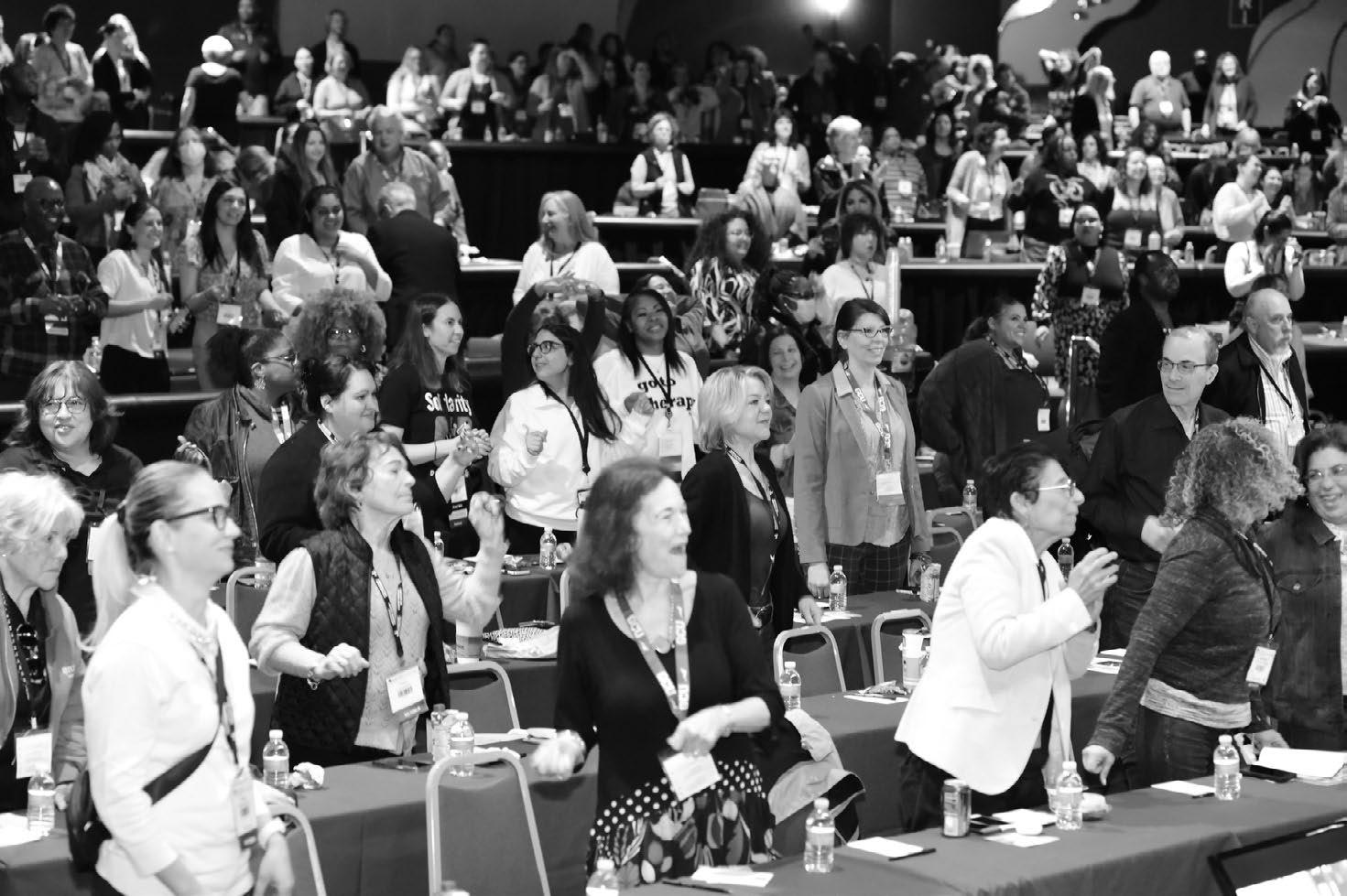



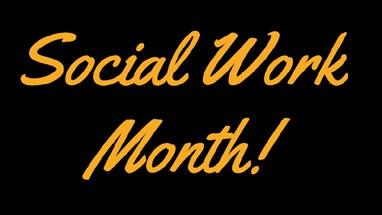


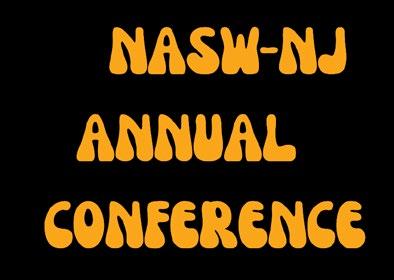


NJFOCUS • Spring 2024 | 1 APRIL MARCH MAY A W A R E N E S S Mental Hea th M O N T H NASW-NJ VOTER GUIDE p. 13 SOCIAL WORK MONTH OVERVIEW pgs. 5-6 2024 NASW-NJ ANNUAL CONFERENCE OVERVIEW pgs. 7-9 SPRING 2024 • Vol 33.3

BOARD OF DIRECTORS
INTERIM PRESIDENT, Carrie Conger
1 ST VICE PRESIDENT, Kim Finnie
SECRETARY, Tiffany Mayers
2 ND VICE PRESIDENT, Jennifer Sorensen
GRADUATE STUDENT REP, Jana Sasser
UNDERGRADUATE STUDENT REP, Paola Benitez
REGIONAL REPS, Courtney Wise, Ruslana Church, Franya Rodriguez, Renee Frazier
UNIT LEADERS
NASW-NJ has 4 units across the state of New Jersey.
NORTHWEST
UNIT LEADERSHIP
Dina Morley
Afifa Ansari
CENTRAL
UNIT LEADERSHIP
Vimmi Surti
Miguel Williams
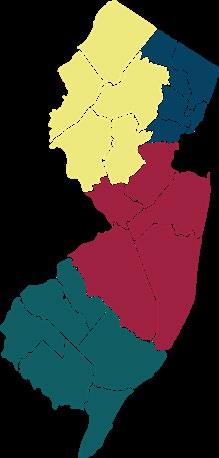
CHAPTER OFFICE
EXECUTIVE DIRECTOR
Debra O'Neal, LMSW, ACSW doneal.naswnj@socialworkers.org or ext. 164
DIRECTOR OF DEVELOPMENT & EDUCATION
Helen French hfrench.naswnj@socialworkers.org or ext. 122
MEMBERSHIP AND EDUCATION SPECIALIST
Willis Williams wwilliams.naswnj@socialworkers.org or ext. 110
NORTHEAST
UNIT LEADERSHIP
Melissa Donahue
SOUTH
UNIT LEADERSHIP OPEN POSITIONS
POLICY & LEGISLATION MANAGER
Cherése Godwin, PhD, MSW cgodwin.naswnj@socialworkers.org
ENGAGEMENT COORDINATOR
Resia Cooper, MSW rcooper.naswnj@socialworkers.org or ext: 154
MEMBERSHIP & COMMUNICATIONS COORDINATOR
Johanna Munoz, MSW jmunoz.naswnj@socialworkers.org or ext 160
GRAPHIC DESIGNER
Katherine Girgenti kgirgenti.naswnj@socialworkers.org or ext. 129
NASW–NJ CHAPTER OFFICE
100 Somerset Corporate Blvd 2nd Floor, Bridgewater, NJ 08807, Ph: 732.296.8070, www.naswnj.org


TABLE OF CONTENTS 04 05 07 10 15 27 34 38 MESSAGE FROM FROM THE CHAPTER PRESIDENT & EXECUTIVE DIRECTOR SOCIAL WORK MONTH OVERVIEW 2024 NASW-NJ ANNUAL CONFERENCE OVERVIEW ADVOCACY IN ACTION THE LATEST FROM THE FIELD STUDENT CENTER MEMBER CONNECT PROFESSIONAL DEVELOPMENT Thank you to our partner Rutgers School of Social Work for their support of NJ FOCUS
FROM THE INTERIM PRESIDENT & EXECUTIVE DIRECTOR

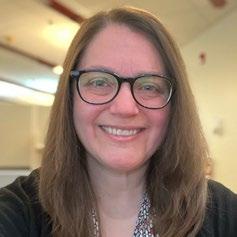 Carrie Conger MSW, LSW INTERIM PRESIDENT
Carrie Conger MSW, LSW INTERIM PRESIDENT
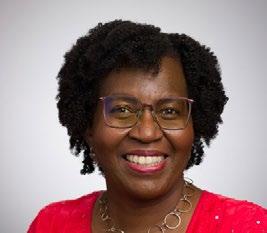 Debra A. O’Neal
MSW, ACSW, LMSW EXECUTIVE DIRECTOR
Debra A. O’Neal
MSW, ACSW, LMSW EXECUTIVE DIRECTOR
Dear NASW-NJ Members,
Among the three themes of this issue is Social Work Month, a valuable moment to reflect on the everyday impactful work within the social work profession. This year’s social work month theme was Empowering Social Workers. And we had a wonderful time celebrating the month with the community. In a time when the challenges that face our communities and the world are mounting, social workers are advocating for change and reforms that are desperately needed.
You are on the frontlines every day, helping individuals, families and communities remove barriers and obstacles while providing support and resources so they can reach their potential. This work is not easy. It requires a dedication to obtaining a unique set of skills, education, and refinement of one’s ability to be a competent professional with high ethical standards. We salute you.
To meet the social and human challenges of the present time, we need more social workers. To that end, it is imperative we
• Tell the story of social work. We need to let the community know who we are, where we are and why social workers are necessary. While there are people in the world that want to help others, Social Work is more than a notion. There are a specific set of educational core competencies, skill development via supervision and adherence to a strict code of ethics, together defines professional social work practice that allow us to support individuals and advocate for social and political change.
• The cost of education and training combined with the intense challenges of the work and rising cost of living, supports the need to have fair and reasonable wages. We must advocate for ourselves to improve salaries for social workers.
• With the excessive cost of a college education, advocating for loan forgiveness programs enables professionals to start their career without the burden of college loan debt.
Irrespective of the challenges, social workers have been strong, resilient, resourceful, compassionate, and have been a voice for the voiceless and a resource for many. For all YOU do each and every day, we CELEBRATE YOU!
We thank you for the work you do.
Sincerely,
Carrie
& Debra

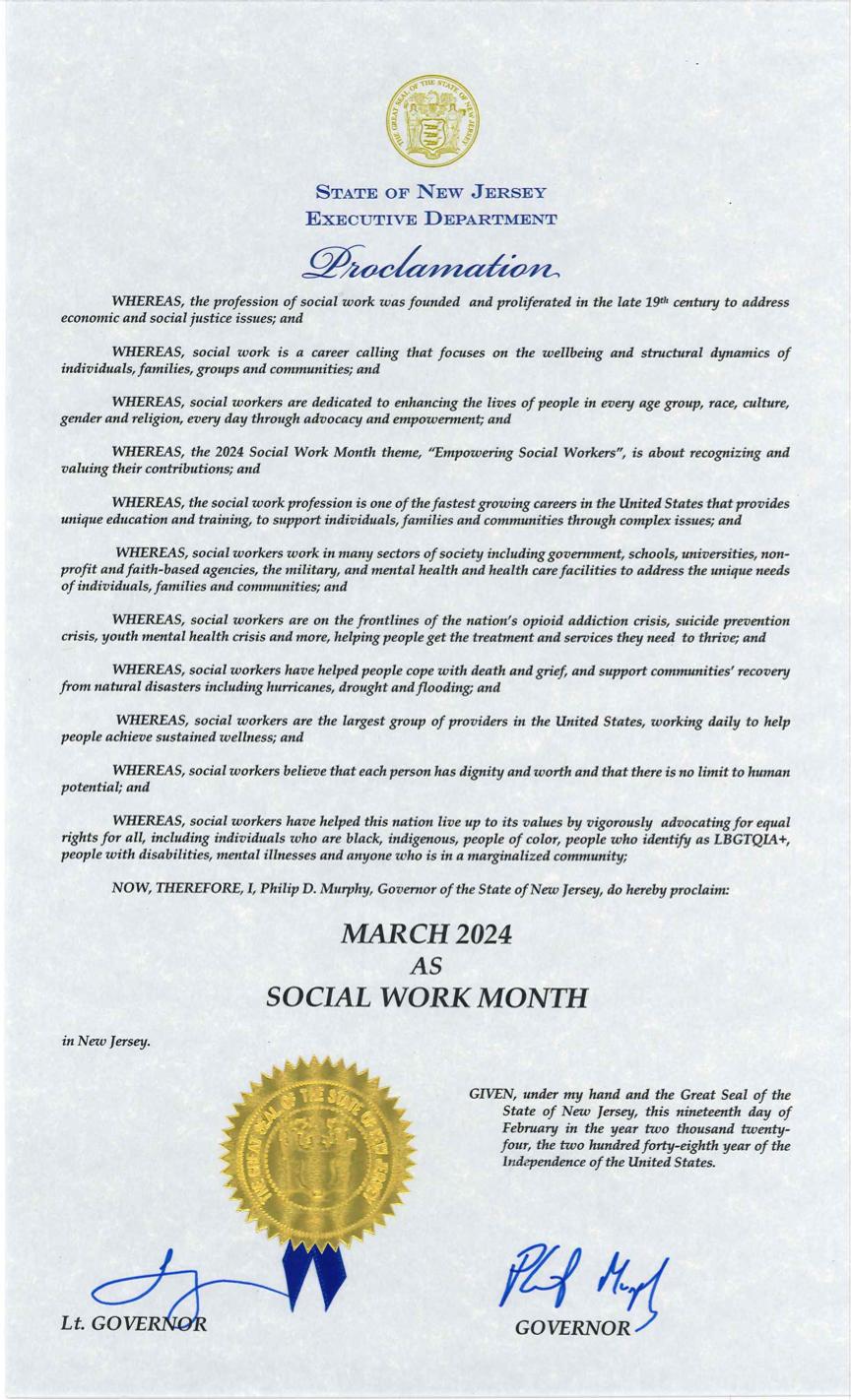
Spring 2024 | 5
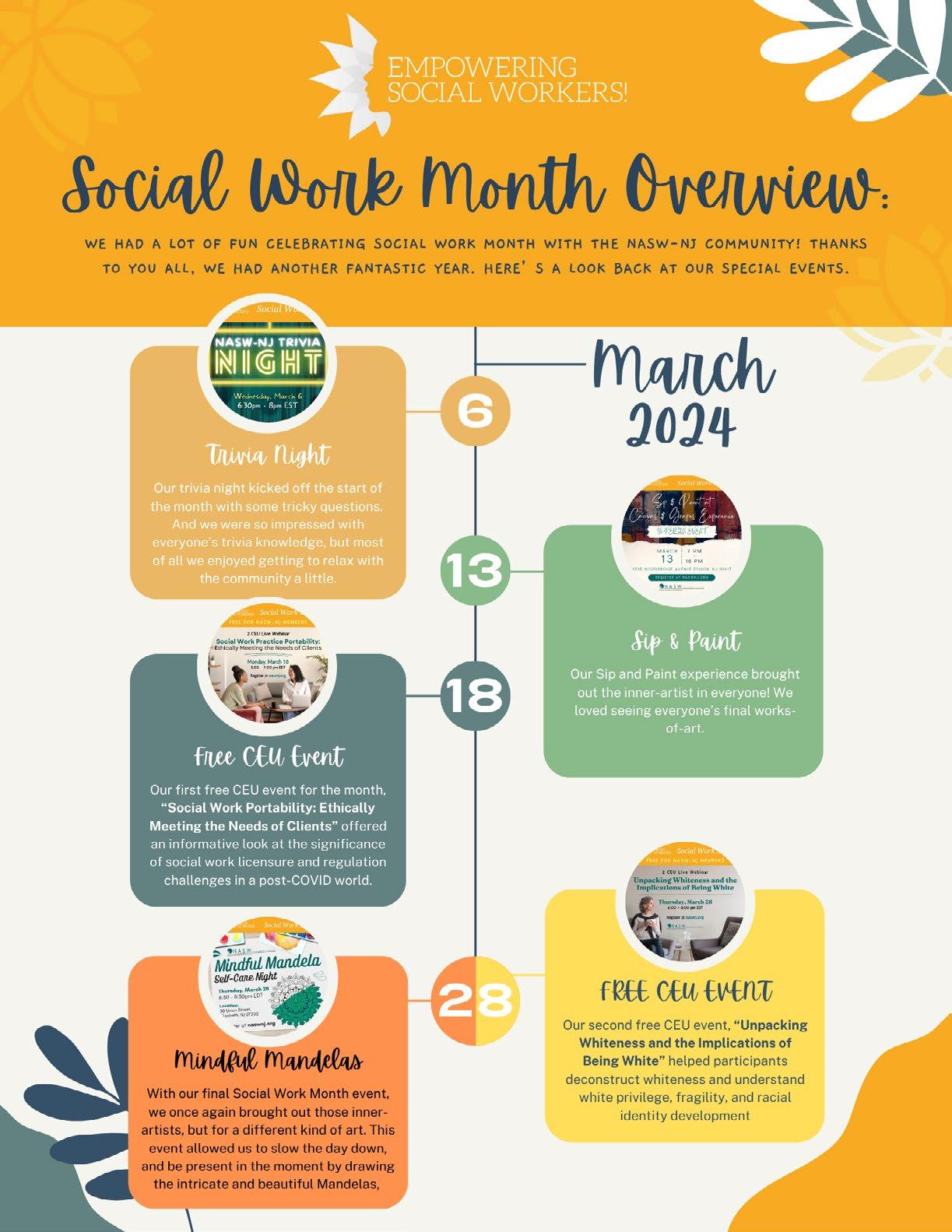


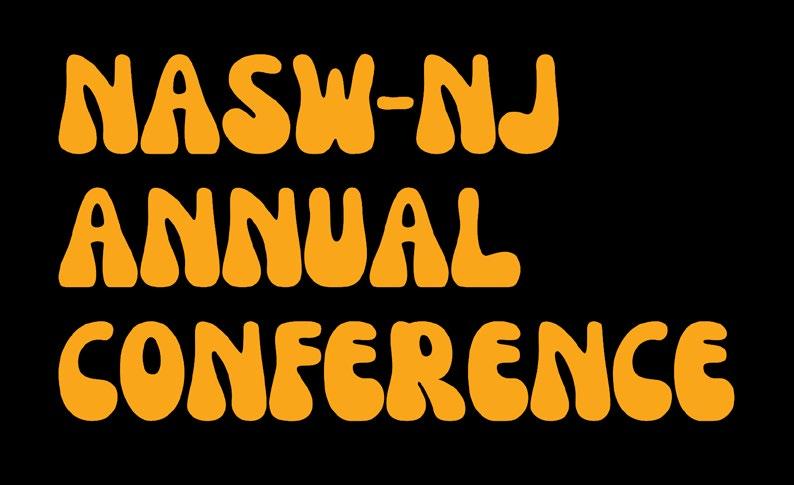

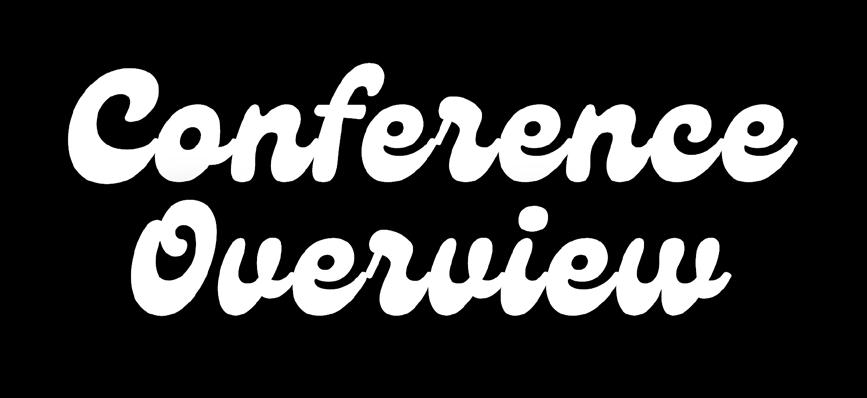



WE WERE SO HAPPY TO SEE ALL OF YOU, BOTH
IN-PERSON AND VIRTUALLY.
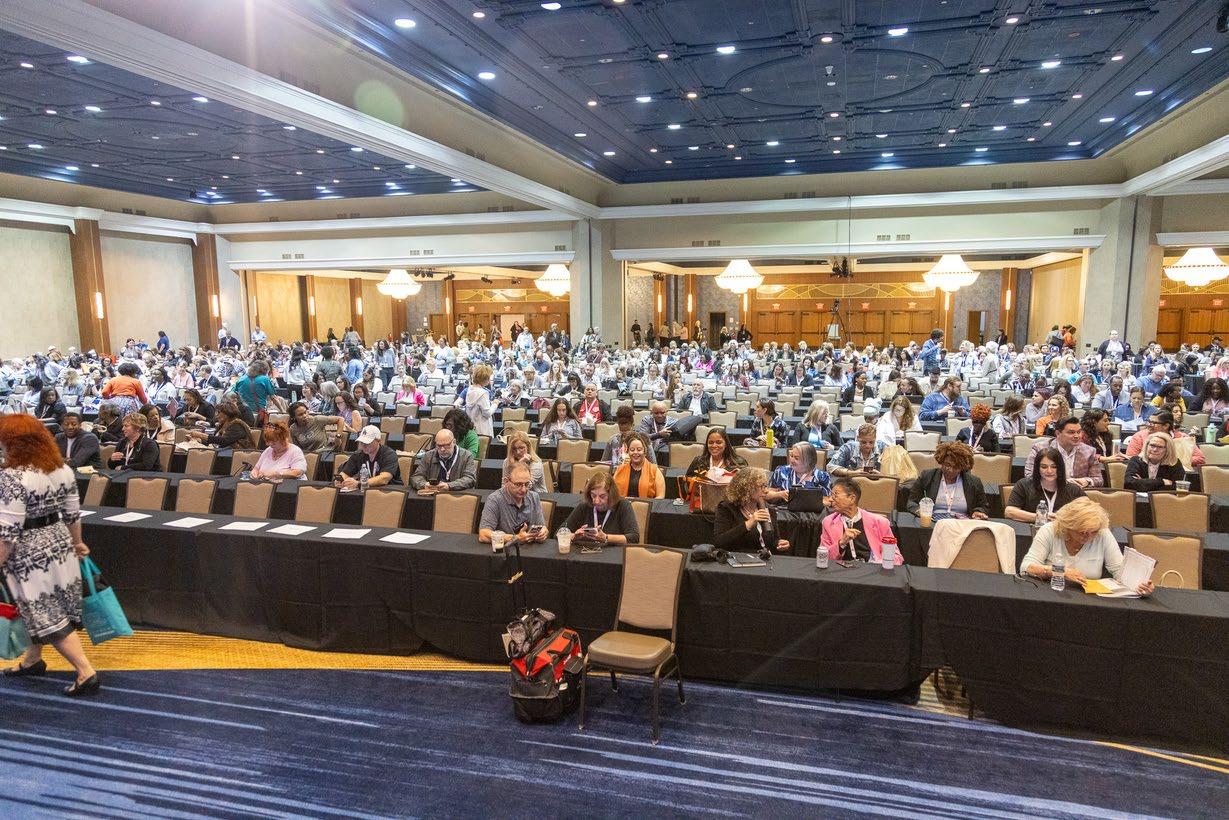
We had an incredible 3 days of thought provoking and engaging sessions for social workers and students, dynamic dance partying, meaningful conversations, and a collection of unforgettable memories We loved getting to hear from you - your stories, your experiences, and your feelings about the profession. And we are always so impressed by the dancing divas we see each year take the dance floor for our party, and of course, the fantastic themed costumes!
A lot of work went on behind the scenes and we are so grateful to all the presenters, exhibitors, staff and incredible volunteers that helped us make our conference a success. And of course, we owe a very big thank you to everyone that attended! You are all rockstars!
And while we were sad to eventually say goodbye to this year’s conference, we were still so thankful to have had such an amazing three days. Seeing all the different essential connections made between attendees is why we do this. We hope you enjoyed it all as much as we did!
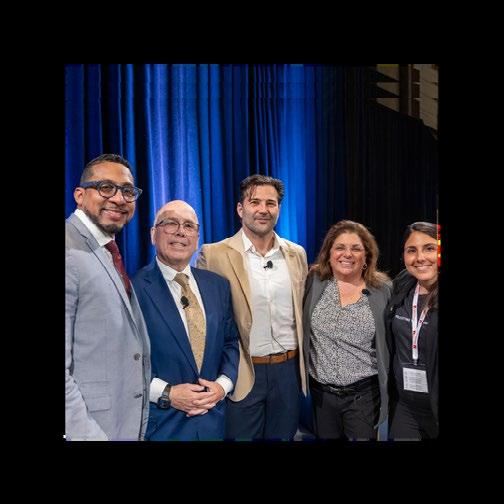
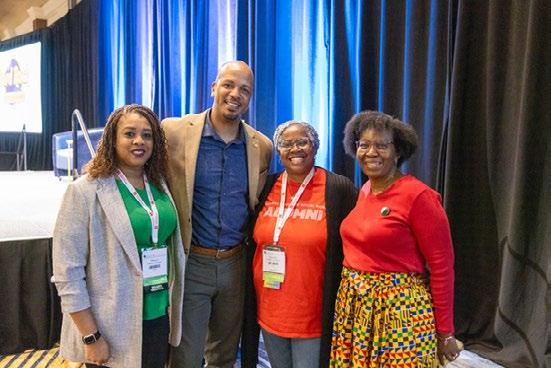
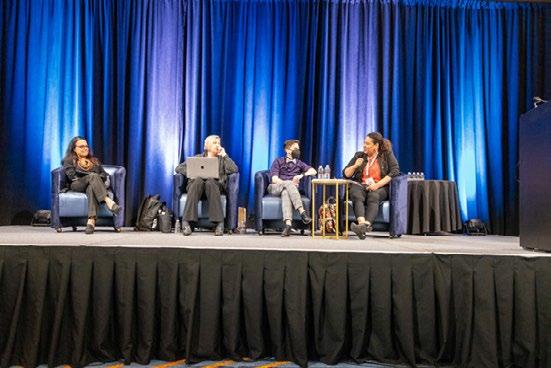
8 | NJFOCUS •Spring 2024 T h a n k s f o r a w o n d e r f u l c o n f e r e n c e . S e e y o u a t t h e n e x t o n e !



movers








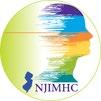


champions
shaker
difference maker THANKS TO OUR YEAR-ROUND PARTNERS YEAR-ROUND PARTNERS R e a c h Y o u r A u d i e n c e w i t h a Y e a r - R o u n d P a r t n e r s h i p E m a i l h f r e n c h . n a s w n j @ s o c i a l w o r k e r s . o r g f o r m o r e i n f o r m a t i o n .
A D V O C A C Y I N A C T I O N

A D V O C A C Y

DR. CHERÉSE NOVELLE GODWIN
An erudite luminary in international organizational development, policy, and advocacy, is the esteemed Policy & Legislation Manager at the NASW NJ & DE Chapter, a UNESCO World Humanities Public Speaker, and a lauded inductee into the University of Pennsylvania Social Work Alumni Hall of Fame Her academic odyssey commenced with a BA in Psychology from the prestigious Clark Atlanta University (CAU), followed by an illustrious cum laude MSW from the University of Pennsylvania School of Social Policy and Practice.
Dr Godwin's professional trajectory is distinguished by her pioneering tenure as the inaugural National Psychologist of National Security for the Federation of Saint Kitts & Nevis, where she provided strategic national policy guidance and counseled the Prime Minister on pivotal reforms. Her tenure included influential roles such as Social Security Board Director for the Chamber of Industry & Commerce, catalyzing over two billion dollars in funding through adept policy-making and strategic data application. Additionally, her leadership prowess extended to the Eastern Caribbean Supreme Court Mediation Board and roles within the Rotary International Liamuiga Chapter and Business and Professional Women (BPW)
Her professional accolades include the 2017 Woman of the Year in Business and Leadership by the Chamber of Industry & Commerce and the International Labour Organization (ILO), where she also earned certifications in Social Policies in Decent Work and Social Protection Dr Godwin formerly
presided as CEO of the Social Impact Agency, previously known as Leverage, Ltd., consulting internationally on Organizational Development, Policies, Environmental, Social, and Governance (ESG), and Social Enterprise organization
Currently, Dr Godwin imparts her vast knowledge at the University of Pennsylvania School of Social Policy & Practice, spearheading a course series on Data for Equitable Justice, reflecting her profound dedication to fostering social equity through education and policy reform. Her academic credentials are further enhanced by a Ph D in Social Work Policy, Planning, Administration & Social Sciences from the Whitney M Young Jr School of Social Work at CAU, where she graduated summa cum laude Her extensive teaching experience includes positions at Livingstone College, Albany State University, Temple University, Middlesex County College, Walden University, and Easton College.
Dr. Godwin's intellectual acumen is augmented by numerous professional certifications, such as Social Impact Strategy from the Center for Social Impact Strategy, ESG & Climate Change, and Social Activism from the University of Pennsylvania; Social Enterprise from Wharton Online; and Global Energy and Climate Policy from the University of London As a proud member of Zeta Phi Beta Sorority, Inc., Dr. Godwin continues to inspire and effectuate significant global change, advocating for gender equity and the development of robust societal frameworks through sustainable and innovative initiatives
NJFOCUS • Spring 2024 | 11
P L E A S E W E L C O M E O U R N E W P O L I C Y & L E G I S L A T I O N M A N A G E R : M S W , P H . D . , C . D I R
I
H
G H L I G H T S
A D V O C A C Y
H I G H L I G H T S

KEY COMPONENTS OF OUR AGENDA INCLUDE:
Advocating for policies and initiatives that promote social justice and champion human rights
Addressing professional concerns and broader social justice issues through a robust legislative agenda.
Collaborating with legislators, stakeholders, and members to shape strategic priorities and advocate for sound policies
Conducting comprehensive reviews of priorities and social issues annually to ensure alignment with the evolving needs of our communities
e National Association of Social Workers (NASW) - New Jersey Chapter has g been at the forefront of championing social justice, human rights, and mmunity welfare throughout the state With a rich history of advocating for rginalized populations and confronting systemic barriers, NASW NJ has nsistently strived to enhance the well-being of individuals, families, and mmunities across New Jersey.
ounded in its core values, NASW NJ's policy and legislative agenda serve as a tament to its unwavering commitment to addressing pressing social issues d fostering a more just and equitable society Over the years, NASW NJ has actively engaged policymakers, stakeholders, and community partners to advocate for policies and initiatives that propel social justice and uplift the welfare of all residents statewide
The 2024-2025 Policy & Legislative Agenda marks the continuation of NASW NJ's proactive efforts to effect positive change and realize its vision of a fair and equitable society for all. This comprehensive agenda encompasses key areas aligned with NASW NJ Policy Statements, ranging from behavioral health and child welfare to economic and social justice, environmental justice, and beyond
NASW NJ's advocacy extends beyond professional concerns to encompass broader social justice issues, ensuring that its priorities are reflective of the evolving needs of New Jersey's diverse communities Annually, the Legislative and Social Action (LASA) Committee conducts a thorough review of priorities, collaborating closely with legislators, stakeholders, and members to shape strategic initiatives and advocate for sound policies.
Through collaborative efforts and unwavering advocacy, NASW NJ seeks to shape policies that address pressing social issues and pave the way for a brighter and more inclusive future for New Jersey With a steadfast commitment to social justice and community welfare, NASW NJ remains dedicated to advancing the well-being of all individuals, families, and communities across the state
Our agenda spans across various critical areas, aligning with NASW Policy Statements, including behavioral health, professional enhancement, economic and social justice, LGBTQIA+ rights, entrepreneurship, and more. Through proactive engagement with policymakers, stakeholders, and community partners, we aim to drive positive change and realize our vision of a fair and inclusive society for all
By leveraging collaborative efforts and advocating for meaningful change, we aspire to shape policies that tackle pressing social issues and lay the groundwork for a brighter future for New Jersey. We have added two new areas to our policy statements/key policy areas which are Democracy and Entrepreneurship as we advocate for bills in this area that affect our members.
12 | NJFOCUS •Spring 2024
N A
N J 2 0 2 4 - 2 0 2 4 P O L I C Y A G E N D A
S W -
NASW NJ’S VOTER EDUCATION GUIDE IS OUT
and can be found in our Advocacy section, please look out for our National Primary Voters Education Guide closer to November.
You can view the guide here.

The National Association of Social Workers (NASW) New Jersey Chapter is a pivotal organization dedicated to promoting, developing, and protecting the practice of social work and social workers in the state of New Jersey. As part of the broader national organization, NASW-NJ actively advocates for social justice and policy changes that benefit both the professionals within the field and the communities they serve. This includes legislative advocacy, continuing education opportunities for social workers, and a platform for professional networking The NASW-NJ Chapter not only enhances the professional growth of its members but also strives to ensure that social justice principles are integrated into social work practice across the state.
New Jersey’s approach to primary education is guided by a commitment to providing high-quality educational opportunities for all students The New Jersey Primary Education Guide outlines the standards and expectations for elementary education, emphasizing a comprehensive curriculum that includes core subjects alongside arts and physical education. The state has implemented rigorous standards to ensure that young learners receive a well-rounded education that fosters intellectual, social, and emotional development New Jersey is known for its strong public school system, which is supported by robust funding and resources, ensuring that schools have what they need to succeed and adapt to changing educational demands
Voting holds paramount importance in shaping the educational and social policies that directly impact communities, including those served by social workers It is a fundamental democratic right and a powerful tool for change Through voting, citizens have a voice in electing representatives who make decisions on everything from local school boards to national legislation These decisions can influence educational policies, funding allocations, and social services that affect everyday lives. Encouraging voter participation is crucial, as it leads to more representative and responsive governance Social workers, in particular, play a vital role in advocating for policies that support social welfare and education, making their participation and encouragement toward voting critically important in fostering an informed and active electorate Each of these facets professional advocacy by NASW-NJ, the prioritization of comprehensive education in New Jersey, and the fundamental act of voting contribute collectively to the betterment of society They ensure that the social and educational frameworks not only support but also advance the welfare of all community members, particularly the most vulnerable
NJFOCUS • Spring 2024 | 13
W
Le De Po
PRESS RELEASES PRESS RELEASES

po ongoing student loan debt crisis, collaborating directly with MOHELA, a leading student loan servicing agency This critical engagement is part of a broader initiative to develop solutions for debt forgiveness and to enhance

deliver on broad & generous debt relief!
chaired by Senator Elizabeth Warren (D-MA), leader of the U S Senate Committee on Banking, Housing, and Urban Affairs Subcommittee on Economic Policy.

New Jersey Compact Bill Progress: Advancing Through Senate Committee
In other exciting news, we are pleased to announce that the Compact Bill has taken a significant step forward on its journey towards enactment On April 11th, the Compact Bill was sent to the Senate Committee, bringing us one step closer to its passage This development signifies a crucial milestone in our efforts to promote interstate licensure reciprocity and ensure the mobility of social work professionals. T
Long before the issue of student debt dominated national headlines, the Student Borrower Protection Center (SBPC) and the National Association of Social Workers (NASW) have been working to address the crushing weight of the student debt crisis Now, we need your help to tell the Biden Administration that its prospective student debt cancellation plan must be as GENEROUS, BROAD, and AUTOMATIC as possible.
14 | NJFOCUS •Spring 2024 N C
d
o
A p r i l 1 2 , 2 0 2 4 M a y 8 , 2 0 2 4 M a y 9 , 2 0 2 4 R e a d m o r e h e r e . R e a d m o r e h e r e . R e a d m o r e h e r e .

THE LATEST FROM THE FIELD
M E M B E R M I S S I V E S

Ican recall in 2019, chatting with a colleague I had met about our respective journeys toward becoming social workers, while attending a New Jersey Division of the Deaf and Hard of Hearing (NJ DDHH) board meeting. As a Hard of Hearing (HH) adult and newly licensed social worker, I embarrassingly chuckled with my colleague about how difficult the LSW exam was for me, given that I grew up using both English and American Sign Language (ASL); I ran into multiple language barrier issues before finally passing it. My colleague, who identifies as Deaf, nodded in agreement, stating that he has taken the exam a few times and continues to struggle with passing due to ASL being his first language. He went on to explain his concern around a general lack of D/d/HH (Deaf/deaf/Hard of Hearing) social workers practicing in NJ, which he believes is due in part to the language barrier and passing the LSW exam. Today, as a practicing mental health clinician, I look around me and realize my colleague is right. I can count on my fingers the number of licensed social workers in NJ who are fluent in ASL, let alone identify as D/d/HH. This has led me to reflect on a number of barriers that D/d/HH clients may face in New Jersey, as well as clinical considerations for social workers when working with D/d/HH clients.
First, let’s look briefly at NJ D/d/HH statistics as well as D/HH culture and community terms. According
Meeting the Needs of Deaf and Hard of Hearing Clients
By Ariel Meltzer, MSW, LSW
“Knowing there are a growing number of D/d/ HH individuals in our great state of New Jersey, we as social workers need to be mindful of the clinical considerations when working with and/or referring D/d/HH clients for their therapeutic needs.”
to the most recent data published by the Center for Disease Control and Prevention (CDC), in 2020, there were 98 babies born in New Jersey who were diagnosed with permanent hearing loss. In 2018, The New Jersey Department of Human Services announced to the public that approximately “850,000 New Jersey residents have varying degrees of hearing loss ranging from mild to profound. This includes individuals who are born deaf and people who encounter latestage hearing loss.” When we think about D/d/HH individuals, like other minorities, we can think of a spectrum of varying degrees and ranges of hearing loss, as well as an identity that D/d/HH individuals may assign themselves. A capital “D” represents individuals who identify within Deaf culture, whereas a lowercase “d” represents individuals who may not identify within Deaf culture, and/or outside of the culture. For example, an individual who lost their hearing later in life may not identify with Deaf culture, and instead, may think of their hearing loss as just that—a hearing loss, without any attachment and/or identification to Deaf culture. On the topic of Deaf culture, this community represents individuals who may be Deaf, deaf, HH, CODA (Child of Deaf Adult), and/or an ASL interpreter.
Reflecting on discussions with clients and colleagues who identify as D/d/HH and those who, while not D/d/HH identifying, work and collaborate in a space
16 | NJFOCUS •Spring 2024
Disabilities
with D/d/HH individuals, let's look at some barriers that D/d/HH individuals may face:
• A lack of mental health providers who identify as D/d/HH. This is due in part to the following challenges:
• Struggling to pass the LSW and/or LCSW exam due to language barriers;
• Fear of test-taking; and,
• Lack of D/d/HH ADA accommodations for taking the exam.
• A lack of mental health providers who are fluent in ASL.
• A lack of inpatient and outpatient mental health services with knowledge and/or experience of and working with the D/d/HH community, including understanding language, community, culture, and sensitivity.
• Being a minority, D/d/HH communities tend to be small, and mental health providers who are qualified to work with D/d/HH clients need to consider the ethical implications (i.e., dual relationships).
• A lack of D/d/HH and/or ASL-fluent mental health providers who specialize in a specific area of mental health that the D/d/HH client is seeking.
• A lack of qualified, RID-certified (Registry of Interpreters for the Deaf) ASL interpreters, should the client request an interpreter when working with a non-ASL mental health provider.
• Access to healthcare issues:
• It can be challenging for D/d/HH individuals to gain employment, and as such, there are D/d/HH clients who do not have insurance and will not be able to make payments towards mental health providers;
• A D/d/HH individual may not qualify for sliding scale, or there is a general sliding scale unavailability at the practice at that time; and,
• Many practices do not accept Medicare or Medicaid
• Knowing there are a growing number of D/d/HH individuals in our great state of New Jersey, we as social workers need to be mindful of the clinical considerations when working with and/or referring D/d/HH clients for their therapeutic needs. These include:
• Language choice of the client (i.e., ASL? Spoken English? Both?);
• Preference of therapist in terms of D/HH identifying or not (i.e., D/d/HH therapist?
Hearing therapist?);
• Cultural implications (if any) of the client's D/d/ HH identification;
• Intake assessments may need to be modified if, for example, ASL is used as a first language for the client;
• For telehealth clients:
• Adjusting the screen to show full view of hands if the client is using ASL;
• Stable internet connection to avoid choppy/slow connection for effective ASL and/or lip reading communications;
• Offering a telehealth platform that has captions and is HIPAA-compliant (e.g., Zoom; Google Meet subject to certain conditions being met); and,
• For non-ASL fluent mental health providers, ensuring the client who requires ASL has access to an ASL interpreter.
As social workers in NJ, together, we can make therapy more accessible for D/d/HH clients by continuing to be mindful of the barriers and clinical challenges these clients face and put them into action through collaboration and dedication.
For more information on assisting NJ D/d/HH clients in the following areas including, but not limited to:
• How to hire an ASL interpreter;
• Deaf and Hard of Hearing Sensitivity Training;
• ASL learning resources;
• Equipment distribution;
• Employment;
• Emergency Preparedness; please visit: https://www.nj.gov/humanservices/ddhh/
References:
1 https://www.cdc.gov/ncbddd/hearingloss/2020-data/07-diagnosed-by-3-months.html
2 https://www.state.nj.us/humanservices/news/press/2018/approved/20180518.
html#:~:text=About%20850%2C000%20New%20Jersey%20residents,encounter%20 late%2Dstage%20hearing%20loss
About the Author:
Ariel Meltzer, MSW, LSW identifies as a HH adult, and is a mental health clinician and Certified Trauma Professional (CTP) with The Princeton Center for MindBody Healing. Ariel is fluent in ASL and provides mental health therapy for both D/d/HH identifying and hearing clients. She works with young adults, adults, and elder populations.
NJFOCUS • Spring 2024 | 17 Disabilities
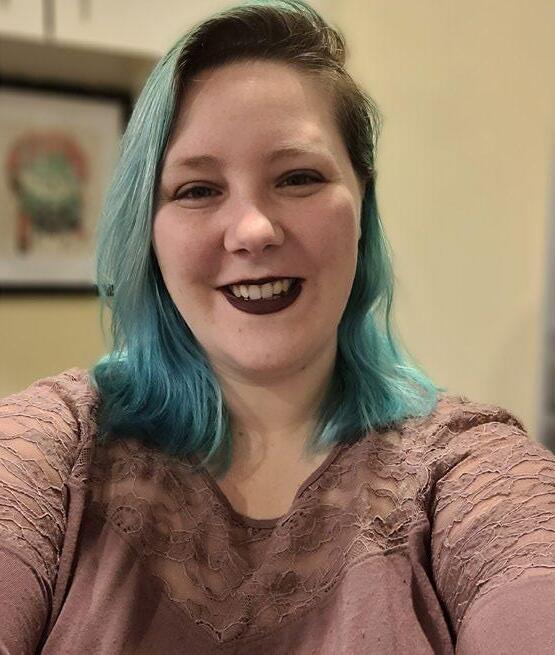
Within the last few decades, there has been an increase in incorporating geek culture, interests, and fandoms into the therapeutic process. This shift has included incorporating such activities such as table-top role-playing games (i.e. Dungeons and Dragons), video games, and other similar interests as part of the therapeutic process. While this movement is not a unified endeavor, it has come to be referred to as Geek Therapy. This form of therapy seeks to incorporate fandoms and aspects of geek culture with evidence-based practices and existing therapeutic modalities.
The term fandom is used to refer to a subculture of people that are “fans” of or engage with a community centered around a particular topic. Most often, fandoms center around particular tv shows, movies, videogames, books, or comics. And, while these examples are illustrative of fandoms, it is important to note that fandoms can extend to virtually any subject matter that has a passionate following. With the increase in accessibility and communication through the expansion of the internet and social media, fandoms have evolved from small, localized communities to more global communities. Social media platforms such as Twitch, YouTube, Tumblr, Reddit, TikTok, and Facebook have played a major role in increasing the accessibility of fandoms by
It’s Dangerous to Go Alone: An Exploration of Geek Therapy
By Shelby Somers, LCSW
“The different forms of media we interact with help to shape our ideas and understanding of the world around us. They are part of our environment as much as the physical locations and people around us are.”
connecting individuals from all over the world and giving a space to interact with others regarding shared interests.
Within the therapeutic setting, the environment and identity play crucial roles in effectively working with an individual. As part of clinical training, there is a focus on the person in the environment as well as the Biological/Psychological/Social/Spiritual model in assessing individuals. As social workers, our primary focus is meeting individuals where they are and exploring how their environment impacts them. When working with individuals we are trained to take an intersectional approach that allows for the exploration of the environment an individual is in as well as the identities they have. Often, when speaking of the environment, our focus is on the physical locations and the people an individual interacts with. However, one aspect of the environment that has often been overlooked is the form of media an individual interacts with, including books, video games, comics, and more. As part of the intake process, we asses for cultural, spiritual, and social backgrounds to better understand the identities of an individual, but our exploration of hobbies and interests, along with associated fandoms, seldom go beyond the rapport building phase. The different forms of media we interact with help to shape our ideas and
Geek Therapy 18 | NJFOCUS Spring 2024
understanding of the world around us. They are part of our environment as much as the physical locations and people around us are. Similarly, the fandom(s) a person connects with are integrated into their identity and can play an important role in the therapeutic process. By expanding our ideas of what makes up the environment, we can then explore the fandoms and identities that are important to an individual.
While there is typically a focus on the interests and hobbies a person has during the rapport phase, these could also be used to better inform the therapeutic processes. One example of how the therapeutic process is evolving is the rise in popularity of Geek Therapy. Geek Therapy is not a modality, but rather an approach that focuses on utilizing the fandoms and interest an individual has as part of the therapeutic process. Within Geek Therapy there is an emphasis on fandoms and interests as part of an individual’s identity. By incorporating these interests into the therapeutic process, therapists can connect more effectively with individuals while also making therapeutic interventions and processes more relatable. For example, you can incorporate a discussion of spell slots from Dungeons and Dragons or pokéballs from Pokémon to breakdown and explain the concept of prioritization, burn-out, and self-care. In the world of Dungeons and Dragons, spell slots are a limited resource that are only refilled when you rest. This can help facilitate a conversation around what self-care looks like and appropriate responses or expectations in various situations. By incorporating fandoms in conjunction with evidenced based practices, the therapeutic process can become more approachable and relatable.
Outside of analogies related to fandoms, table-top role-playing games can also be used to facilitate in-vivo experiences that allow for exploration and processing of emotions. These games such as Dungeons and Dragons or Kids on Bikes rely on shared storytelling mechanics that can facilitate exploration of various topics like interpersonal skills, relationships, identity, and more. Geek Therapy often resonates with neurodiverse populations in part because it can facilitate conversations around identity and representation through exploration of characters they relate to. By incorporating fandoms into the therapeutic process, clinicians provide an avenue for self-expression, which in turn presents the individual
with an opportunity to invite the clinician to better understand the individual’s worldview and sense of self.
The topics discussed here are by no means exhaustive, and in fact, one of the biggest benefits of Geek Therapy lies in its endless adaptability to a variety of situations. Because Geek Therapy is not a modality, it integrates with existing therapeutic approaches such as cognitive-behavioral and psychodynamic to name a few. The purpose of Geek Therapy is to enhance the therapeutic process by creating opportunities for individuals to connect and relate to therapeutic approaches that may otherwise be challenging. By expanding our view of the environment and incorporating fandoms as part of our understanding of identity, Geek Therapy enhances the ability to meet individuals where they are.
About the Author:
Shelby Somers, LCSW (she/her) - Shelby is a licensed clinical social worker (LCSW) working towards clinical licensure in the mental health field. She received her master’s in social work from Rutgers University and is a self-described “geek.” Professionally, she has experience working with children, teens, and adults through traditional talk therapy and EEG Neurofeedback. Shelby is an LGBTQ+ and neurodivergent affirming therapist with experience working with individuals and families across the lifespan. She has previously presented on topics such as fandoms and identity as well as trauma-informed tabletop roleplaying. She is also interested in utilizing tabletop role-playing games and board games in a therapeutic setting.
Geek Therapy
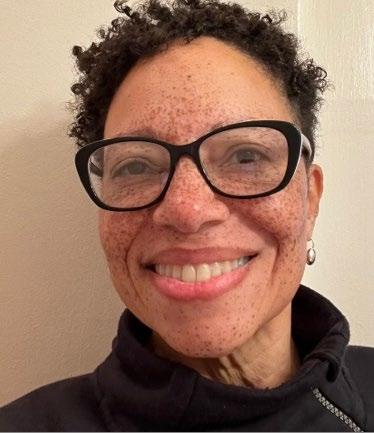
Recently, I was given the honor of speaking to students at an NASW-NJ virtual student summit. This opportunity afforded me the chance to reflect on my experiences in the social work field over the span of the past 30 years. Three decades is a long time to stay in “one place”. A long time to be committed to one thing. As I thought about what I wanted to share with the students, I began to review my career and focused on what has allowed me to remain a social worker all this time. I reflected on beginning my career in the nineties after finishing with my BSW. That first job, as a youth counselor at a group home, was the foundation for a journey into a lifelong commitment to helping others. As the time grew closer to my presentation for the students, I finally decided to share various tips (20 to be exact) that assisted me in sustaining myself in this field. And I’d like to share just a few of those key tips/strategies that I feel have aided me along the way.
First, be open to the journey that is social work. From my first job in the field to my current occupation as a therapist, to all the various, diverse clients I’ve encountered; it has all been part of the enriching experience. The journey actually began with the education I received at Virginia State University, in my BSW classes.
Three Decades in Social Work. A Personal Reflection
By Robin C. Wiley, DSW, LCSW
“...it’s so important for seasoned professionals, like myself and many of you to reach back into the profession and lift up those in the next generation.”
Matriculation through my BSW program prompted a metamorphosis for me. Those classes and the professors that taught them challenged my understanding of the world and my place in it, as well as encouraged me to take on a position of activism and commitment to helping others. I left the BSW program with a very different outlook on life, and the impact of environmental factors.
I was fortunate to obtain a job right out of undergrad at a group home for girls, which I feel is the story of many social workers in my generation. This leads me to my second tip, don’t underestimate the significance of a seemingly insignificant job. Those “small” jobs (with a low pay rate) lead to greater knowledge and bigger opportunities. The jobs I’ve had in group homes or in case management positions, for example, have provided foundational skills which helped me to be a better clinician. So, keep an open mind. No matter how inconsequential a job may seem, always look for the value it may bring. As social workers, our learning opportunities are endless.
Third, I’ve learned to be open to changing/shifting my focus throughout my career. I feel like a career is made up of a series of jobs. And those jobs may be in different areas of social work. I’ve worked
20 | NJFOCUS •Winter 2023 Clinical Social Work
with children, teens, adults, and older adults, as well as in various agency settings from group homes, substance abuse programs, long term care facilities, prisons, etc. Don’t feel like the job right after school or the demographic you are working with will be your forever job. It could be, but be open to other opportunities as they arise. As a therapist currently, these combined experiences give me a broader context through which to be more effective with my clients.
Of course, along with various work experiences there comes the good, the bad and the indifferent. My next strategy is to learn from the not-sopleasant jobs and the not-so-great supervisors. You will experience both for sure. I could tell some stories, but I won’t. Those unfortunate experiences can be difficult to manage in the moment. Try not to allow this to define our profession. Social work encompasses much more than the dynamics of a dysfunctional, toxic workplace (that happens to be a human service agency) and those supervisors that do anything but the actual task. However, being strength-based is part of the social work way, so I’ll focus on that more productive direction. I can honestly say that I’ve received some invaluable lessons from those jobs and supervisors, which have guided my practice, as well as created a template for the importance of supervision. With that being said, make sure to always consider your freedom of choice. Do not stay where you cannot thrive. Just don’t leave behind the lesson.
My last tip relates to learning. It’s important to be a lifelong student and to remember that learning doesn’t occur in a silo. Our lessons are not just coming from the classroom or the many academic texts we have on our shelves. The lessons come from the jobs, the conferences, the colleagues, and clients we serve. Be open to being taught from a variety of teachers and experiences. Of course, our profession has mandated requirements to ensure we stay on top of continued learning opportunities, but don’t limit your learning opportunities to just CEUs. Learning can come from all directions.
We’ve all been social work students at one time or another. As a student, I remember having a lot of questions related to the unknown. I was afraid of the uncertainty of it. Would I get a job? How would I engage clients? Would I know what I was talking
about? This vulnerability in the unknown is a feeling I believe today’s social work students also share.
Therefore, it’s so important for seasoned professionals, like myself and many of you to reach back into the profession and lift up those in the next generation. I’ve been honored to share what I’ve learned from these past three decades in social work and hope to continue to learn and grow on this journey. And I encourage other professionals to do the same. Share your wisdom through teaching, mentoring, etc. to help ease the trepidation felt by many of the up-and-coming social workers of tomorrow and help them pave their own path forward in the profession. There are bound to be many ups and downs on the path, but with the right mindset and support, it can be a journey that is incredibly rewarding.
About the Author:
Robin C. Wiley, DSW, LCSW, is a therapist and owner of the group practice, Infinity Empowerment Services, LLC in Southern, New Jersey. Dr. Wiley focuses much of her work on empowering older adults and those who work with them. She strives to assist family members and helping professionals work more effectively with older adult through better understanding of their unique experiences. She can be reached though her websites drrobinwiley.com or theexperienceofaging.com
Clinical Social Work

HClinical Interventions for Traumatized Veterans
By Lisa E. Cox, PhD, LCSW, MSW
aving a loved one or friend serving in the military often entails a sense of uncertainty and concern for the wellbeing of the enlisted member. Military families, social workers, educators, and students alike are left with many questions about where U.S. service members are stationed and why. Both domestically and overseas, the United States has a strong military presence with well over 1.3 million active-duty members stationed abroad and at home. 1 Seven states (CA, FL, GA, NC, TX, VA, WA) host nearly 60% of all active-duty troops in the U.S. Ten countries host over 87% of all active-duty U.S. troops overseas.
Given this sizeable population of active members, there have been frequent reports from military personnel of high levels of stress. Therefore, clinical interventions are necessary to improve military work environments and familial relationships, ultimately leading to a better quality of life. Stress may occur upon deployments, during active duty, and amid reintegration. Finding ways to successfully cope with stress is vital to the readiness of the
“Currently, the need for effective and tailored treatment for veterans and service members is at a critical point... Many soldiers, sailors, airmen, and marines have returned from long and highly stressful combat deployments and many are serving second and even third and fourth tours."
armed forces and the healthiness of a veteran’s familial relationships.
Military social workers help members of the armed forces do just that – by helping them reintegrate into civilian or professional life after a deployment, injury, or personal crisis. Social workers also provide social services to families of veterans and activeduty military personnel. Aspiring social workers enjoy strong job prospects! The Bureau of Labor Statistics 2 projects an 11% increase in social work jobs through the year 2028, far outpacing the national average for all occupations. Military social workers qualify to work in the U.S. Department of Veterans Affairs, and the federal government. In addition, civilian social workers in private practice and in healthcare settings may all potentially work with veterans, service members, and their families.
Social work clinicians ought to consider their collective responsibility when it comes to offering culturally supportive counseling to military families. This is because war time experiences often leave service members with traumatic memories and
22 | NJFOCUS •Winter 2023 Clinical Social Work
emotional, moral, and physical injuries. After deployment and upon reintegration, people often need help processing their lived experiences and obtaining much needed resources. Advocacy efforts and the use of military genograms, Photovoice, and cognitive processing tools can help clinicians manage client trauma.
There are a number of health concerns that can arise from military enlistment. Four of the main health-related challenges military social workers see are Post-Traumatic Stress Disorder (PTSD), Traumatic Brain Injury (TBI), Substance Use Disorders (SUD), and suicide. Culturally competent social workers can often best help clients when they themselves understand military culture, and can offer cognitive processing therapy, trauma-informed care, and suicide prevention.
Researchers (Kranke, Floersch, & Dobalian, 2019) have found that one in five veterans meet the diagnostic criteria for PTSD and other stressor-
related disorders. In addition, the invisible wounds from PTSD and TBI have increased the risk for homelessness, substance use, suicide, and unemployment for veterans.
The PIE (Person-in-Environment) theoretical framework and military social workers—or even civilian psychotherapists—are essential in helping veterans achieve balance and well-being. Through mutual assessment, social workers, and their military clients and respective family members can benefit from a PIE practice focus aimed at: 1) improving stress management; 2) modifying social and physical environments; and 3) improving the quality of person-environment exchanges.
Therefore, knowledge about military social work is in demand. In response, Dr. Lisa Cox, LCSW and Professor of Social Work and Gerontology at Stockton University, offered a 2-hour On Demand session entitled: Innovative Clinical Interventions to Alleviate Trauma with Service Members and Their

Clinical Social Work
Families as part of NASW-NJ’s April 2024 annual conference. The session provided information about useful clinical interventions to consider using when helping clients who are veterans, current service members, or members of military families. While some of the content addressed military culture, terminology, and cultural issues, most of the information conveyed highlighted empirically validated clinical tools and strategies designed to facilitate positive coping with trauma and behavioral health concerns. Vignettes and thought exercises were incorporated to help conference attendees learn about current cultural realities and ethical issues social workers face when they help clients with military experience.
Existing military organizations value social workers, and an immense need exists to increase the capacity of community behavioral health providers, programs, and organizations to counsel and serve veterans, active-duty service members, and military families. Clinical social workers in private practice or in agencies can benefit their clients the most when they understand military culture, jargon, and trauma interventions. Effective veteran counseling efforts derive from implementing a wide variety of evidence-based interventions. For example, inter-professional collaboration that involves both social workers and allied professionals may be a powerful way for social workers to better understand the experience for military families. Also, inter-professionally based social workers can negotiate systems and advocate for policy change in healthcare, child welfare, and gerontology.
The On Demand session also introduced participants to The Veterans and Active-Duty Military Psychotherapy Treatment Planner . This resource contains treatment plan components for 39 behaviorally based presenting problems. Over 1,000 prewritten treatment goals, objectives, and interventions are included; and a step-by-step guide to writing treatment plans that meet the requirements of most insurance companies and third-party payors is included. This treatment planner also touched upon evidence-based practice interventions as required by many public funding sources and private insurers. Sample Treatment Plan
examples highlighted in this On Demand session focused on PTSD, Adjustment to Killing, and Opioid Dependence.
Currently, the need for effective and tailored treatment for veterans and service members is at a critical point. Operation Iraqi Freedom and Operation Enduring Freedom have required millions of men and women service members. Many soldiers, sailors, airmen, and marines have returned from long and highly stressful combat deployments and many are serving second and even third and fourth tours. The estimated number of military members suffering from psychiatric and social problems is in the hundreds of thousands. Our Veterans Affairs hospitals are serving countless veterans from prior wars and conflicts too, such as Vietnam, Korea, Bosnia, and the Persian Gulf War. Suffice it to say, social workers are in demand to lend clinical interventions and coordinate much needed social services and resources.
References:
1 USA Facts (Feb. 2, 2024). Where are U.S.A military stationed and why? https://usafacts.org/articles/where-are-us-military-members-stationed-and-why/
2 Bureau of Labor Statistics (Retrieved 2/12/24 from https://www.bls.gov/ooh/community-andsocial-service/social-workers.htm
About the Author:
Lisa E. Cox, PhD, LCSW, MSW, is Professor of Social Work and Gerontology at Stockton University, where she teaches both undergraduate and graduate level courses. For over 30 years she has been a Licensed Clinical Social Worker with practice experience in health (Gerontology, HIV/AIDS, Oncology), mental health, and medication adherence issues. Dr. Cox is the author of seven books and her service efforts include: Vice Chair of NJ Board of Social Work Examiners, Board Member for PASWHA (Professional Association of Social Workers in HIV/ AIDS), Atlantic County Mental Health Advisory Board, and Advisory Board member for Stockton University’s Center on Successful Aging (SCOSA). She has presented at regional, state, national, and international levels and enjoys playing the piano and traveling.
24 | NJFOCUS •Spring 2024
Social Work
Clinical

BBlack History Month, Bringing Intersectional Reflexivity to the Forefront
By Gardan Speights, DSW, LCSW
lack History Month is a reminder of the Black excellence that has contributed to many advancements in American history. It is a time to commemorate the achievements of the known and unsung heroes in the Black diaspora. This historic month, has continued to be a reminder to amplify the experiences of my ancestors who were active in fighting racism and marginalization. And this past Black History Month, I found myself inspired by the contributions of Black social work pioneers who actualized the social work core values (NASW, 2021) by engaging in community organizing and activism to ensure Black communities were receiving equitable access to education (Snowden et al., 2021) and community resources (Parker, 2023). In particular, I was reminded of the Black social work pioneers Lugenia Burns Hope, Dorothy Height, and Edward Franklin Frazier, who fought against oppression to advance the needs of communities disenfranchised by racist policies and laws.
Despite the traditional celebratory commemoration during Black History Month, I am constantly
“How will you show up by understanding and leveraging your positionality to be the change in organizations, higher education institutions, and therapeutic relationships and engaging in political action to advocate for marginalized and oppressed communities? "
reminded of the disparities that exist in Black and Brown communities. As a social worker, I am aware of my privilege and intersectional identities that afford me many privileges that my brothers and sisters may not have due to systemic barriers. The infiltration of systemic racism across a variety of institutions does not make it easy for black and brown folx* to ascend with ease without additional effort and occasional support. Therefore, commemorating this month, I find a continued renewal to engage in radical social work practice (Cardenas, 2017). This radical social work lens actualizes the core values outlined by the profession’s ethical code.
As a black social worker in the movement towards social justice, Black History Month is not just a monthly observance. Honoring the struggles of my ancestors who came before me to pave the way for me to have privileges, motivates me to continuously follow the tenets of radical social work. Briskman (2017) conceptualizes four tenets of radical social work: 1) critical questioning, 2) reflexivity, 3) emotional response, and 4) action
NJFOCUS • Spring 2024 | 25 Intersectionality
that pushes boundaries. In my practice, I promote storytelling during supervision, in the classroom, and nonprofit management, to dismantle hegemonic ways of thinking and to advance organizational missions. It has long been a tradition in the African diaspora and Indigenous communities (McCleary & Simard, 2021) to share experiences and disseminate knowledge for learning. This often gives way to critical reflexivity and the encouragement to lean into the discomfort, furthering critical questioning of positionality and acknowledging emerging feelings. Briskman (2017) and Cardenas (2017) highlight the move toward action that pushes boundaries; this is the intentional act of engaging in social action in one’s social work practice to facilitate revolutionary change.
I call on all social workers to consider how they will dismantle hegemonic worldviews and practices to actualize our Code of Ethics. How will you show up by understanding and leveraging your positionality to be the change in organizations, higher education institutions, and therapeutic relationships and engaging in political action to advocate for marginalized and oppressed communities? Ask yourself this, not just during Black History Month, but every month. Lean in and educate yourself about the history of U.S. Black Americans and Black people globally; refuse the urge to erase black history in social work education by acknowledging the pioneers and their contributions to the profession and developing an understanding and appreciation for traditions and ways of knowing. Lastly, I challenge allyship by adopting a radical lens to transform communities and promote social change. Let us make “Black History” month an everyday celebration by acting, breaking barriers, and empowering change across all intersectional identities.
Glossary:
*Folx- a term used to include all groups of people*
References:
Briskman, L. (2017). Revitalising radical social work. Aotearoa New Zealand Social Work, 2 (2), 133–136.
Cardenas, I. (2017). Radical social work. Journal of Progressive Human Services, 2 (2), 55–57. https://doi.org/10.1080/10428232.2017.1292491
McCleary, J. & Simard, E. (2021). Honoring our ancestors: Using reconciliatory pedagogy to dismantle White supremacy. Advances in Social Work, 21 (2/3), 259–273. DOI: 10.18060/24146
National Association of Social Workers (NASW). (2021). Code of ethics of the National Association of Social Workers . Washington, D.C.
Parker, A. (2023). Black social workers matter: Using parallel narratives to discuss social work history. Journal of Social Work Education, 59 (1), 255–262. https://doi.org/10.1080/10437797.2021.2019634
Snowden, F., Tolliver, W. & McPherson, A. (2021). Needing, kneading, and eating Black bodies: The history of social work and its concern for Black citizenship in the United States. Advances in Social Work, 21 (2/3), 217–240. DOI: 10.18060/24469
About the Author:
Gardan Speights, DSW, LCSW, is a non-profit management leader, clinical supervisor, mental health advocate, and adjunct professor passionate about the well-being of people and communities. She is especially inspired to help young people see the value in their voices and lives by engaging in storytelling to discover their personal and professional gifts.
26 | NJFOCUS •Spring 2024
Intersectionality

S T U D E N T C E N T E R
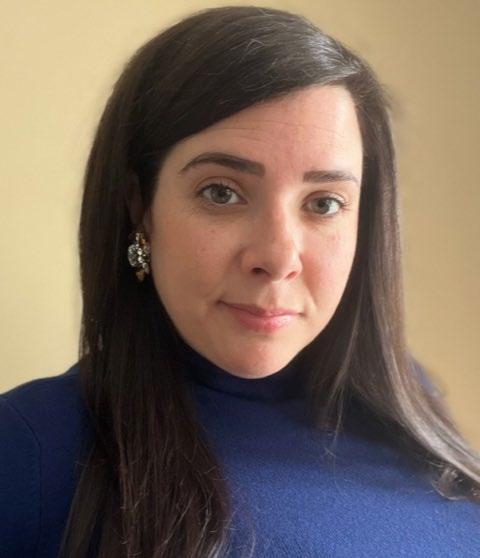
When I was in my early 20’s, a series of overwhelming events led me to seek out a therapist. A quick Google search turned up four providers in my area who could see me as early as the next week. I submitted my information, my appointment was confirmed, and a few days later I was sitting across from the woman who would help me find the courage to leave an abusive ten-year relationship. For most, especially those who are deaf, finding a therapist is not that easy. As the search begins, many questions arise. Will this therapist know about Deaf culture, provide the interpreter requested while scheduling, or feel uncomfortable working with me because of our auditory differences?
The deaf community suffers from mental health issues at about twice the rate of the general population and encounters a great deal of problems accessing much needed mental health services.1 Communication barriers, mental healthcare providers (MHP) who lack cultural competence, and a history of negative interactions with hearing doctors often prevent the deaf community from seeking out mental health services (MHS). Additionally, lack of familiarity with the social and cultural norms of deaf patients causes conditions such as mood disorders to be frequently under diagnosed in the deaf community. 2 For example, a deaf person may stomp their foot to get the provider’s attention. Though this isn’t an indicator of anger or aggression, it may be perceived as so by someone unaccustomed to this very appropriate attention getting practice.
A Call for Change: Barriers to Mental Health Care in the Deaf Community
By Megan Warshauer, Fairleigh Dickinson University, MSW Class of 2024
Additionally, unlike voiced language, signers cannot express volume, intonation, or tone that alters or affects the meaning of spoken words. Instead, they may use exaggerated facial expressions and rely on “tone of face.” This may be confused as a symptom instead of as a parameter of American Sign Language (ASL) referred to as “non-manual markers.” Regardless of the misconstruing of cultural norms, there is a great need for ASL interpreters who are trained to work in these settings. There are certain concepts or idioms of distress that may be challenging for an interpreter to convey accurately without significant expertise. Effective communication and cultural understanding is critical in healthcare settings where miscommunication may lead to misdiagnosis and improper or delayed medical treatment. 3
The Right to Mental Health for Individuals who are Deaf or Hard of Hearing Act (A5600/S4007) was introduced in the New Jersey State Legislature on June 15, 2023 and focuses on the specialized needs of deaf and hard of hearing communities— an communication barriers and cultural needs. The legislation finds and declares it essential that consumers who are deaf or hard of hearing have access to appropriate MHS that are provided in the primary communication method used by the individual. The bill recognizes that services should be provided by MHP who are fluent in the individual’s primary method of communication, understand the unique nature of being deaf or hard of hearing, and can collaborate skillfully with interpreters when they
28 | NJFOCUS •Spring 2024
Student Center
are needed. To ensure service delivery, the Division of Mental Health and Addiction Services (DMHAS), in consultation with the Division of the Deaf and Hard of Hearing (DDHH), summarizes the need for adequate funding to all culturally affirmative and linguistically appropriate MHS, as well as incentives to promote the recruitment and retention of certified MPH. There is a plan in place to employ a deaf services coordinator, who will be responsible for overseeing the implementation of these services, while establishing a certification process for professionals trained to work in this capacity. This bill is currently pending in the New Jersey Assembly Human Services Committee, and as such, it is the perfect time to show support for it.
Passing this bi-partisan legislation would begin to address the inequities deaf people experience when accessing MHS. It is, therefore, crucial for your representatives to support this initiative. Contact your legislators and emphasize the importance of interpreters to ensure that all users of American Sign Language experience effective, quality communication. You can also show your support by visiting the National Association of the Deaf’s website (www.nad.org) to print and send a variety of letters that promote equal communication and access to suitable mental healthcare for the deaf community. It’s imperative that MHP employ interpreters for their deaf patients. In one study, failure to provide requested interpreter services resulted in 82% of patients being unable to understand their diagnosis, 70% not understanding the guidelines for their treatment, and 63% choosing to discontinue care. 4 Under Title III of the Americans with Disabilities Act (ADA), if you feel that you need an interpreter in order to understand what your healthcare provider is telling you, then the healthcare provider is required to provide you with one. The scarcity of trained interpreters, the monetary challenges of budgeting for communication services, and poor awareness of the needs of the deaf population all present themselves as challenges to this provision. Effective communication is crucial because language discordance in healthcare reduces healthcare satisfaction, diagnosis abilities, and treatment adherence. 5 In the absence of an interpreter, simple accommodations like adequate lighting, a face mask with a clear panel to facilitate lip reading, or having a pen and paper handy in the absence of an interpreter could deeply benefit discourse between the deaf patient and the provider.
As I reflect on my education in the field of social
work, I’m compelled to refer to the profession's primary mission: “to enhance human well-being and help meet the basic human needs of all people, with particular attention to the needs and empowerment of people who are vulnerable and oppressed.” 6 Mental healthcare is an integral component of health and well-being that underpins our individual and collective abilities to make decisions, build relationships, and shape the world we live in. Failure to provide access to culturally affirmative and linguistically appropriate MHS to the deaf community denies them dignity, self-determination, and hope. The marginalization of this group is unethical, prejudicial, and in violation of the United Nations Universal Declaration of Human Rights. I implore you to recognize that deaf rights are human rights. The health care system has largely failed to both insure and provide accessible language services and health information for many deaf individuals. Denying the deaf community competent mental healthcare providers is denying them basic human rights and furthering inequalities faced by an often overlooked population. Though we can’t snap our fingers and set things right in the world of mental healthcare for the deaf, we can recognize there are major obstacles preventing this community from receiving the services they (like everyone else) are entitled to, and advocate for change.
References:
1 Batten, G., Oakes, P. M., & Alexander, T. (2013). Factors associated with social interactions between deaf children and their hearing peers: A systematic literature review. Journal of Deaf Studies and Deaf Education, 19(3), 285–302.https://doi.org/10.1093/deafed/ent052
2 Black, P. A. (2006). Demographics, psychiatric diagnoses, and other characteristics of North American deaf and hard-of-hearing inpatients. Journal of Deaf Studies and Deaf Education, 11(3), 303–321. https://doi.org/10.1093/deafed/enj042
3 US Department of Justice. (2023). ADA Business BRIEF: Communicating with People Who Are Deaf or Hard ofHearing in Hospital Settings. https://archive.ada.gov/hospcombrprt.pdf
4 Santos, A. S., & Portes, A. J. (2019). Perceptions of deaf subjects about communication in primary health care. Revista Latino-Americana de Enfermagem, 27. https://doi.org/10.1590/15188345.2612.3127
5 McKee, M. M., Barnett, S. L., Block, R. C., & Pearson, T. A. (2011). Impact of communication on preventive services among deaf American Sign Language users. American journal of preven-tive medicine, 41(1), 75-79.
6 National Association of Social Workers. (2017). NASW code of ethics. Retrieved Month, Day, Year, from https://www.socialworkers.org/About/Ethics/Code-of-Ethics/Code-of-Ethics-English
NJFOCUS • Spring 2024 | 29
Student Center
PARTNER SPOTLIGHT
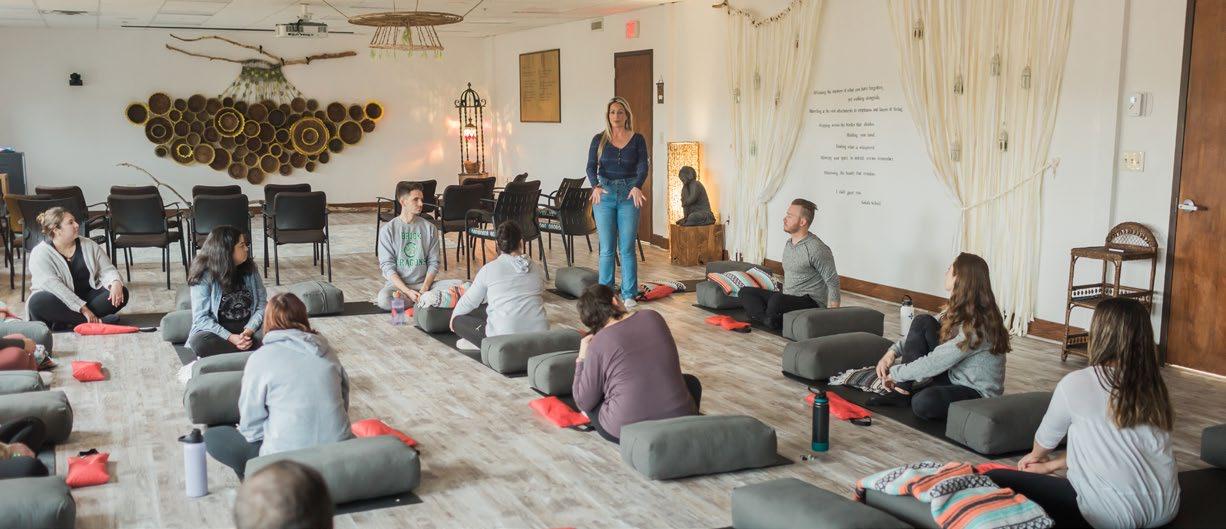
Integrated Care Concepts and Consultation (ICCC) is one of the only facilities in the country to embrace the total body healing modalities found in both Western and Eastern philosophies. Our team of licensed therapists and highly trained mind-body specialists use a host of mental health treatment methodologies to provide holistic, trauma-informed care in an environment designed to offer comfort, calm, and the ideal space for transformation and growth.
We’re dedicated to supporting each of our clients from the moment they first connect with us and throughout their entire experience with ICCC. From the warmth of our office environments, to the heartfelt greetings you’ll receive from our staff, straight through to the personalized treatment and discharge process, we provide you with the tools, space, and support to heal and to recover. Our intention is to affirm and advocate for the practice of interbeing, equanimity, loving kindness, compassion, and joy within the individual, the family, the organization, the community and the world.
We acknowledge that effective clinical outcomes for our clients begin with effective and compassionate care for our clinicians. We recognize that the true nature of the individual is whole, wise minded, and balanced and that there is no separation between mind and body.
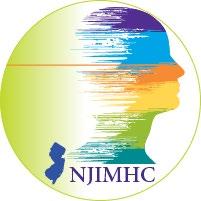
This awareness informs our integration of allopathic and holistic medicine, and Eastern and Western psychology. It is our observation that these approaches reside in the same universe of healing and coexist in a complementary manner that empowers a continuum of care and the return to the true nature of balance.
This mind-body approach combines pills and skills in a way that doesn’t just help you find the right pharmaceutical solution but also provides you with strategies that address your development as a person.
This customized mind-body strategy gives you the tools you need to navigate daily life with a greater understanding of yourself.
As educators and empathizers, we believe that the person comes before the prescription and strive to help you navigate your life and the connection between your brain and your body. This will allow you to grow your relationships with yourself and those you love and will help you bridge the gap between where you are and where you hope to be.
At ICCC, we know that good supervision drives good clinical outcomes. That’s why our whole-person approach extends to the way we interact with our team, the growth-encouraging environment we provide them, and the support channels we make accessible so that they are well cared for personally and professionally.
30 | NJFOCUS •Spring 2024
We know that our clients feel safe because the people working here feel safe as well. What sets our team apart from others is the profound difference in our staff culture. Our supervision process is multifaceted and ensures that our staff are cared for, educated, and fully supported every step of the way.
We’re dedicated to a holistic approach to the care of staff, including interactional supervision in a humanistic environment, a parallel process that allows our clinicians to feel safe and supported in the environment in which they work. This creates a trickle-down effect in which we hold one another accountable for doing what we say we will do while supporting the professional and personal growth of everyone on our team.
ICCC’s mind-body approach permeates all that we do. In our interactions with both one another and our clients, everything is integrated. Process meets the person, and we assist you in achieving your recovery, in your way, at your pace. This life you’re creating is meant to be lived on your terms and we use our wholeperson approach to your well-being to help you find out what that looks like and to pursue it for yourself.
ICCC uses an outpatient plus model. This means that you can receive multimodal aspects of care and not just one form of treatment when you visit us. From medication management to yoga to psychotherapy, you can spend time throughout your week receiving a variety of treatment and personal development modalities.This approach means that you’ll have access to far more than your general outpatient practice offers and that’s with good reason. Your customized wholeperson-focused treatment plan doesn’t place you on one of a handful of “cookie-cutter” style tracks, as some other practices might. Instead, you collaborate with your clinician to design a personalized treatment plan that meets your needs.
ICCC is a bridge between both sides of your brain, allowing your being side (the right brain) to commune more fully with your doing side (the left brain). From breathwork to meditation to yoga to talk therapy, our treatment approaches allow you to walk through the world more peacefully.
The partnership between the ICCC and NASW provides a platform for like-minded professionals who are passionate about integrated mental health to join forces and work together. Professionals from various backgrounds such as mental health practitioners, wellness experts, and allied healthcare professionals can share knowledge, expertise, and resources to enhance the delivery of mental health services. This partnership creates a supportive community where individuals can exchange ideas, best practices, and innovations in the field of integrated mental health care.
This community of individuals has led to the establishment of the New Jersey Integrated Mental Health Conference, the only in person conference of its kind in the nation. The conference allows professionals the opportunity to engage in networking, training, and professional development activities that promote a holistic approach to mental health care. By fostering a community of individuals who value integrated mental health, this annual event aims to improve patient outcomes, enhance the quality of care, and advance the field of mental health services.
Together, these organizations strive to create a supportive environment where professionals can learn from each other, collaborate on research projects, and advocate for policies that promote integrated mental health care. For more information on the Integrated Mental Health Conference, please visit, www.njimhc.com
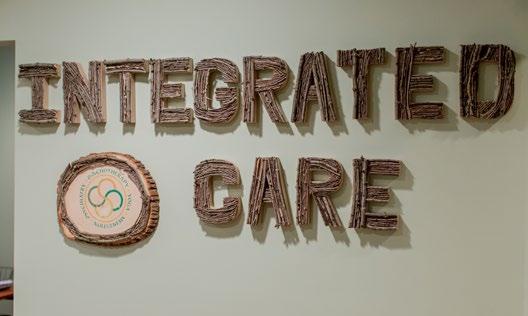
NJFOCUS • Spring 2024 | 31
PARTNER SPOTLIGHT
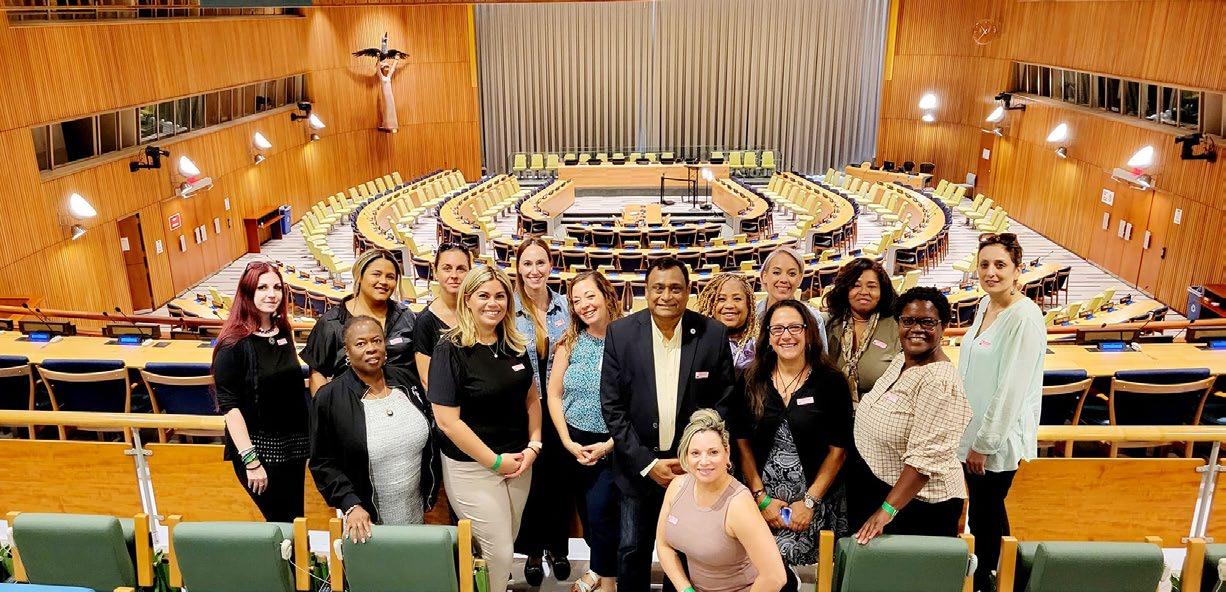

MONMOUTH UNIVERSITY ADVANCES SOCIAL WORK THROUGH NASW-NJ SUPPORT
Monmouth University’s School of Social Work provides graduates with a strong academic foundation that includes opportunities to explore specialty areas of social work, real-world experience, and the knowledge, values, skills, and ethics for a successful and lasting career.
It’s relationship with the NASW-NJ presents networking opportunities to Monmouth University students through the organization’s events, memberships, and other activities, in addition to assisting students as they navigate current societal issues and supporting them as they continue to make an impactful change on the world.
The collaboration has even sparked conversations of intertwining social work and criminal justice, and played a role in the development of the University’s dual bachelor’s degree program, the Bachelor in Social Work (BSW) with Criminal Justice.
“For students, this partnership provides opportunities for professional development, networking, and access to cutting-edge resources and knowledge in the profession. It also fosters a sense of community among students, allowing them to connect with peers and mentors who share similar goals and values. For
faculty, the partnership offers a platform for knowledge sharing, research collaboration, and the development of best practices that align with the ever-evolving needs of the social work profession. Ultimately, together we are striving to foster a culture of social justice and human rights, promoting the well-being and dignity of all individuals and communities," said Michael Cronin, Ph.D., LCSW, MSW Program Director.
Built around the ideals of advancing human rights and social justice, the School of Social Work curriculum features seminar-style classes and personalized field placement for students to gain hands-on experience. Throughout their education, Monmouth students will work across a wide variety of studies including, school social work, mental health, substance abuse, child welfare, gerontology, community organizing, and grant and policy writing, in addition to working with individuals, communities, and, organizations.
Monmouth’s graduate program is nationally recognized by U.S. News & World Report, while both the undergraduate and graduate programs are nationally accredited by the Council on Social Work Education (CSWE), and have received honors from the CSWE and the NASW-NJ for their advancement of excellence in social work. Both programs have also
32 | NJFOCUS •Spring 2024
been formally recognized by the State of New Jersey’s General Assembly as an “Important and Praiseworthy Education Organization.”
The school’s BSW program prepares students for professional practice, continuing their studies at the graduate level, and offers the dual degree program, BSW in Social Work with Criminal Justice. The combination of degrees was developed for students wanting to become leaders in modern crime prevention, and by faculty guided by insight from the NASW-NJ.
Monmouth’s Master of Social Work program provides students a choice of two specializations, Clinical Practice with Families and Children and Global Community Practice, and prepares graduate students to become Licensed Social Workers.
The Social Work program additionally offers a minor in Social Work, a Bachelor’s + Master’s five-year program, and Post-Master’s Certificates in Play and Expressive Therapies and Clinical Social Work. Due to the success of Monmouth’s social work programs, the University recently introduced a new Doctor of Social Work (DSW) in Human Rights Leadership program.
Designed to help students become agents of change at the executive level, DSW students learn how to design, evaluate, and implement effective human rights programs and policies that positively impact individuals and communities. Monmouth’s practicebased curriculum is delivered online through faculty
mentorship opportunities, while the cohort of 15 students benefit from an intensely personalized and collaborative learning experience.
In addition to a hands-on curriculum and field placement, the school features many initiatives and progressive programs for students to maximize their time at Monmouth by getting involved. Some of the initiatives are located on campus, including The Virginia A. Cory Community Garden, while other projects include, The Coming Home Project, The LGBT Older Adult Project, SRF Suicide Prevention Research and Training Project, and the Community Care Telehealth Clinic—which is also an internship opportunity for Monmouth MSW clinical students. The School of Social Work is also involved with the International Federation of Social Workers (IFSW) Social Work at the United Nations Initiative.
Resources such as work handbooks, the Gero-Ed Interactive Education Tool, and participation in the annual Social Work Day at the United Nations are also a part of the Monmouth experience.
In addition, Monmouth’s acclaimed faculty are extremely dedicated to helping students succeed as the next generation of passionate and committed social workers.
For more information on Monmouth University’s School of Social Work, visit Monmouth.edu/school-of-socialwork .


Members Only Perks
With nearly 7,000 members in our New Jersey family, you are part of a larger family of social workers, a network of friends and colleagues who share your commitment to the profession and strengthening our community. While the chapter has many opportunities to connect on a broader level—from educational programs to advocacy events, there are also many great ways for you to connect with your colleagues locally or on a specific area of interest. Read on to learn some ways in which you as a member can build your connections, network and grow in smaller, more intimate spaces—and virtually!


T O Y O U R N E T W O R K F O R S O C I A L W O R K
B E S T P R A C T I C E S & C O M M U N I T Y
2 5 0

W e ' v e w e l c o m e d m o r e t h a n n e w N A S W m e m b e r s t o o u r C h a p t e r s i n c e N o v e m b e r . T h a n k s t o a l l o f y o u ,
N A S W - N J h a s g r o w n t o b e c o m e t h e s e c o n d l a r g e s t N A S W C h a p t e r i n t h e c o u n t r y !
W e l c o m e a b o a r d t o o u r n e w e s t m e m b e r s ! !
NORTHEAST REGIONAL UNIT
BERGEN/PASSAIC
C h r i s s y
J a m i l a h
A n n a
L a u r a
K a i t l i n
C a r o l i n
K e l l i e
C o l e e n
N i c o l e
D e b r a
C a r d a c i a
G a b r i e l l a
T a l e e n
S i b e l
S u s a n n e
K a t h y
A l t i s h a
L o r i l l e e
S t a c i e
C y n t h i a
D a n i e l l e
T r i c i a
I r i n a
B r i e l l e
D i a n a
L i y a
N i c h o l a s
A p i c e l l a
A s f o u r
B a l d a s s a r i
B r a n n a
B r o w n
B a u t i s t a
C a m a r d a
C h r i s t i e
C s e h o v i c s
D a C o s t a
D a v i s
D e l l o s a
D e m i r d j i a n
D o k o
F u h r m a n
G a r c i a
G l a s t e r
G u e r r e r o
H e a t h
H e l l e r
H e r z o g
H i b b e r t
I v a n o v a
J o h n s t o n
K h o u r y
K o w l e s s a r
L e w i s

BERGEN/PASSAIC (CONT)
S a r a h
N i c o l e t t e
P r i s c i l l a
C h r i s t i n a
K e i s h a
A l e x a n d e r
K i m b e r l y
L i n d a
R u t h
N o r a
K r i s t i n a
C a r l y
M a r t a
J e n n i f e r
A r i a n n a
K e l l i e
S h e r r y
L e w i s
L o m b a r d i
M o t a - W i l l i s
M y e r s
P e a r s o n
R a z z e t t i
R o d r i g u e z
R o d r i g u e z A l v a r e z
R u i z
S a r d e n a
S t o n e y
M c G r a w
M i n i o r
T u m m i n e l l o
U r e n a
V a u g h n
W i l s o n
ESSEX
G o d w i n
K i m b e r l y
S a n d r a
J a z i y a h
Y o l a n d a
B r a n d o n
N a t a l i e
M o n t s e r r a t
F a t o u
A d e d o y i n
A g u i r r e
A r e n c i b i a
B r a s h
B r o w n
C a c e r e s
C o r t e z
C o u g h l i n K i m
D a b o
MEMBER
CONNECT
J a n e
H a s h i m
Y e s e n i a
A s h a n t i
A s h l e y
M e l i s s a
N a t h a l i e
M a r i a
R u b e n
T a m a r i s
E l a n a
I m a n
A n a
T i a n a
M a t t h e w
N i c o l e
D i a n a
L a t e e f a h
J a n c e l
Y o l a n d a
K i r s s y
W h i t n e y
M a r t r e c i a

E k e
G a r r e t t
G a v i l a n e s
G o d e t t e
J a c k s o n
J a n s s e n
L e o n a r d o
L o p e z
L u q u e
M a r q u e z P i m e n t e l
M i t c h e l l - M i l l s
M u h a m m a d
O l i v e r a
P i g f o r d - T h o m a s
P r i t i k i n
R e d w o o d
S e r q u e n
T o w n e s
V a z q u e z
W e a t h e r i n g t o n
Y i n g
Z i r i l l i
Z o e g a r
HUDSON
C a r o l i n e
B r y a n
A m a n d a
C h r i s t i n e
L i z b e t h
J e n n i f e r
L a u r e n c e
A b i g a i l
M a d e l i n e
K a e
M a y r a
L e a h
G a l i n a
R h o n d a
A r r e a g a
A u z
A x e l r o d
B e l l
D e l g a d o
G r a n a d a
H o r o w i t z
L i u
L u c a s
P e t e r m a n
R i v a s - F l o r e s
R y a n
T y u k h t i n a
W i g g i n s
UNION
M a r y
C a r o l i n a
C h r i s t i n a
R a c h e l
J e s s i c a
A m b e r
M i c h a e l
E d e l e n
A l f r e d a
V a ’ Q u i s ha
K a r a
G r i s e r y
A l o i a - D o m b r o w s k i
B r a v o S a n c h e z
B r o d e r i c k - R o y e s
C h r i s t e n s e n
M a r t i n e z
M a t o s
M a u t o n e
M c W i l l i a m s
N e t o - N i z a
P r i n c e
R o b i n s o n
R o d r i g u e z
NORTHWEST REGIONAL UNIT
MORRIS
K e l l i e
M a d e l i n e
N i c o l e
C l a i r e
D a n a
K e l l y
T i f f a n y
J u l i a n a
A n n e t t e
B r i a n
B o r d i n e
F r a n k e l
G u a r d u c c i
L e b e r m a n
M a n s o n
M c S p i r i t t
M i l l e r
V a s q u e z A g u d e l o
W o l f f
Y o u n g
SUSSEX/WARREN
C a r l y
A l l i s o n
N i c o l e
S y d n e y
A n n a
N a t a l i e
C l a i r e
D e O l i v e i r a
D e P u y
C h a l a d o f f
J o i c e - C a s e y
M i c h a l i k
R e e v e s
W u
SOMERSET/HUNTERDON
M a r i n a
T a r a
A n a
M a r i s a
D o r i s
C a r o l i n e
D a v i d
C o l l e e n
S i e r r a
A s h l e y
B u r a c h e k
C r u z
F l o r e s
G a r r i t y
G u i t t e n s C a r r
H a r t s h o r n e
K r a j e w s k i
R i s a v y
S c h i f f
W a r n e r
CENTRAL REGIONAL UNIT
MONMOUTH/OCEAN
C a r a
B r i t t n e y
A l e x a n d r a
M i c h e l l e
C a i t l i n
D e n i s e
L u k e
J o a n n e
D o r c a s
D e e n a
E m i l e e
J e n n i f e r
K i e r a
G i n a
S t e p h e n
A s h l e y
L e r i s a
B a n a f a t o
C a r u s o
C a s e y
C e r m e n o
C o o p e r
D e P a l m a - K a r p f
D u n t o n
E s p a r r a
G b e v e - H i l l
G i f f o r d
G o d e k
G r e e n
H a m p t o n
H o f f m a n
H u l e t t
K o r t e n h a u s
L a b r a d a
ESSEX (CONT)
MEMBER CONNECT
T a y l o r
D a n i e l l e
A n g e l i c a
J e s s i c a
K a t h l e e n
D e s i r e a
S h a n n o n
B e n j a m i n
A n t o i n e t t e
J e n n a
I s a a c
K a s s a n d r a
D a w n
V i c t o r i a E r i c k a
M i c h e l l e
R e b e c c a
K r i s t y
M a d i s o n
L a n g e
L u c a
M a r t i n e z - A n a l c o
M a r t i n s o n
M c G u i r e D u n l e a
M e d i n a
M o r r i s
M u n c k
P a l m e r i o
P l u a r d
P o n t e
P o z a l a n t e
R u s i n k o
S a l v i a
S a n t i a g o - D i a z
S m i t h
S u n d t
W i s n i e w s k i
W o o d
MIDDLESEX
M i r a n a
C h r i s t o p h e r
F a i t h
A i m e
D a v i d
T a n e e k a
A l y s s a
A m a n d a
D a r r i a n
J e n n i f e r
L e a n n a
M a t t h e w
S y e d a
N a v e e k a
R o s e
L e x
I v a n
M a r i y a
J a c q u e l y n
G e n e s i s
D h a r a
J i l l i a n
V a l e r i e
A m a n d a - P a u l i n e
A l e x a n d r a
E r y n
M e g h a n
K r i s t e n
V e e
N a o m i

C r y s t a l e
M a r v i n
A m a n d a
J o s e p h
A l m e i d a
B o b e r
B o r d e n
C a m a n a
C h i n
C l a r k
D e l s o r b o
D e m b o w s k i
D o d s o n
G a l l e g o s
H a y n e s
H o w a r d
J a f f r y
K a u s a r
I k i n y a
L a w r e n c e
L i n a r e s
M a i s t e r
N o v i c k
N u n e z
P a t e l
R e n t e n b e r g
S a n t a n a
S e a r s
T e n n i l l
V i l l a n u e v a
W i l l i a m s
W i m m e r
Y e o
Z a r e t s k y
E b r o n
F o r d
M c L e a n
P r i o l o
M e l a n i e
L a u r a
R h o d a
L a r - y o m e
M a r y E l l e n
J u l i a n n e
K i m
A s h n a
M a r i s o l
T r a c e y
N i c o l e
C h e l s e a
A n t h o n y
K a t e l y n
A m o g e
T a y l o r
B r i t t a n y
D i a n e
P r o g a r
W e r h u n
C o b b l a h
G o b a h P o r t e r
G r a n o z i o
M c L a u g h l i n
G e r a r d i
G u p t a
O r t i z - G e l y
S e r v i c e s
V a n D o r e n
M a y e r
M a z a k a s
M c C o n n e l l
O m e r o n y e
P i c k e t t - S t o k e s
R i l e y
W i l t s h i r e
SOUTH REGIONAL UNIT
CAMDEN/GLOUCESTER/SALEM
A n g e l a
J e n n a
L y d i a J a n i n e
E r i c
E l i a n a
N i n a
S a m a n t h a
A n d r e w
L a u r e n
K a r e n
D o u g l a s
S o p h i a
M e l o n i e
D a v i n e
T e d d i - A n n
N y E s h a
B r o w n
C a d w e l l
C h a m p i o n
D a r n l e y
E s r i g
F e d o r y k a
G r i f f i t h
H u f f
J a c o b s
J o h n s o n
K e l l e r
K o u t s o u b i s
L a n d e r s
M y e r s
P o t t i n g e r
S a l v a t o r i
ATLANTIC/CAPE
MAY/CUMBERLAND
J e n a e a
S a r a h
J o h a n n a
S h e r i l y n
T a s h a
C y n t h i a
C h a r l o t t e
M a y e l i n
S h e i l a
K a t h e r i n e
B e t h a n y
A r r a
B r o w n
C a l l a z z o
D u r a z z i
H a d d o c k
H a n n a h
H a r r i g a n
M c G u i r e
N i e v e s
O s o r i a
R o b l e d o
V e g a
W o o d s o n
T h a n k s f o r B e i n g a M e m b e r !
MERCER/BURLINGTON
MERCER/BURLINGTON MONMOUTH/OCEAN
(CONT.)
(CONT.)
MEMBER CONNECT

PPROFESSIONAL ROFESSIONAL DDEVELOPMENT EVELOPMENT
PROVIDING THE SKILLS TO GET AHEAD



Prescription Opioid Misuse & Dependence in New Jersey
Learn the basics about the prescription opioid addiction epidemic in the tri-state area, including the risks and signs of opioid abuse, addiction, and diversion. Hear how to spot it and referral/treatment options. This course fulfills the prescription opioid continuing education requirement for New Jersey social workers (Statute 45:15BB-11.1).
Social Work Ethics & Roe v Wade Supreme Court Decision
On June 24, 2022, the U.S. Supreme Court published a controversial decision in the Mississippi case of Dobbs v. Jackson Women’s Health Organization that effectively overturns Roe v. Wade (a landmark decision of the U.S. Supreme Court in which the Court ruled that the Constitution of the United States generally protects the liberty to choose to have an abortion.)
The Dobbs decision has introduced compelling ethical challenges for social workers who provide services and information related to reproductive health.
Technology and Boundaries: With Dr. Frederic Reamer
The Future of
Interactions in Virtual Spaces
With new and emerging uses of technology in social work practice, social workers need to rethink how they establish and maintain appropriate boundaries with clients. This conversation will explore ethical issues related to using personal technology for work purposes, intentional dual relationships, unintentional dual relationships, and maintaining presence when interacting with clients through technology.

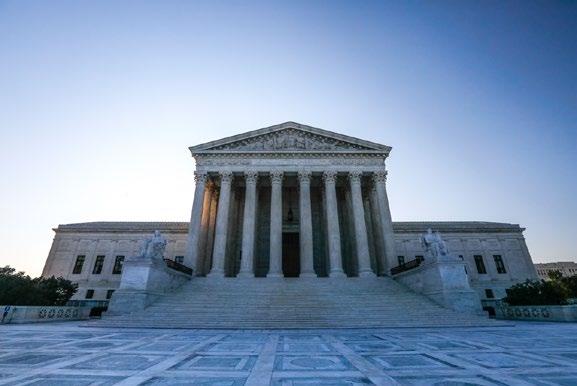

Professional-Personal
1 Prescription Opioid CEU 2 Ethics CEUs 1.5 Ethics CEUs
Get your CEUs on Demand. Visit: bit.ly/SWCEInstituteNASWNJ


(20 CEUs) Clinical Supervision Course (June)
June 10, 9:00 AM - 2:30 PM EDT (SOLD OUT)
Register for the next available session
(2 CEUs) Helping Children and Adolescents
Navigate the Grief Process
June 14, 9:00 AM - 11:00 AM EDT Register
(2 CEUs) Helping Adults & Older Adults
Navigate the Grief Process
June 21, 9:00 AM - 11:00 AM EDT Register

(2 CEUs) The Grief Therapist’s Journey to Resilience
June 28 · 9:00 AM - 11:00 AM EDT Register
1 CEU Live Webinar: Prescription Opioid Misuse and Dependence in New Jersey
July 18, 1:00 PM - 2:00 PM EDT Register
(20 CEUs) Clinical Supervision Course (August)
August 09, 9:00 AM - 2:30 PM EDT (SOLD OUT) Register for the next available session

Add CE credits to your professional development course.

NEW JERSEY CONTINUING EDUCATION APPROVAL COLLABORATIVE R e c o g n i z e d b y t h e N J S t a t e B o a r d o f S o c i a l W o r k E x a m i n e r s a s a n a p p r o v i n g e n t i t y f o r s o c i a l w o r k C E U s i n t h e S t a t e o f N J T O L E A R N M O R E & A P P L Y V I S I T : n a s w n j . s o c i a l w o r k e r s . o r g / P r o f e s s i o n a l - D e v e l o p m e n t / C E - C o u r s e - A p p r o v a l N R P
A D V E R T I S I N G


Over 6500 readers
Digital delivery
Frequency: 1 issue
Full-color, camera-ready image sent to NASW-NJ via electronic upload
Full page (no bleed): $1000
Advertorial: (story ad w/ image or logo) $1500
1/2 page: $700
1/3 page: $450
1/6 page: $300
Inside back cover: $2000
Back cover limited availability, call for details
N E W L A R G E R A D S , S A M E R A T E S
C O N T A C T : F O C U S A D / I M A G E R A T E S : wwilliams naswnj@socialworkers org, call 732-296-8070, or visit naswnj socialworkers org/About/Advertise for more information 41 | NJFOCUS • Spring 2024
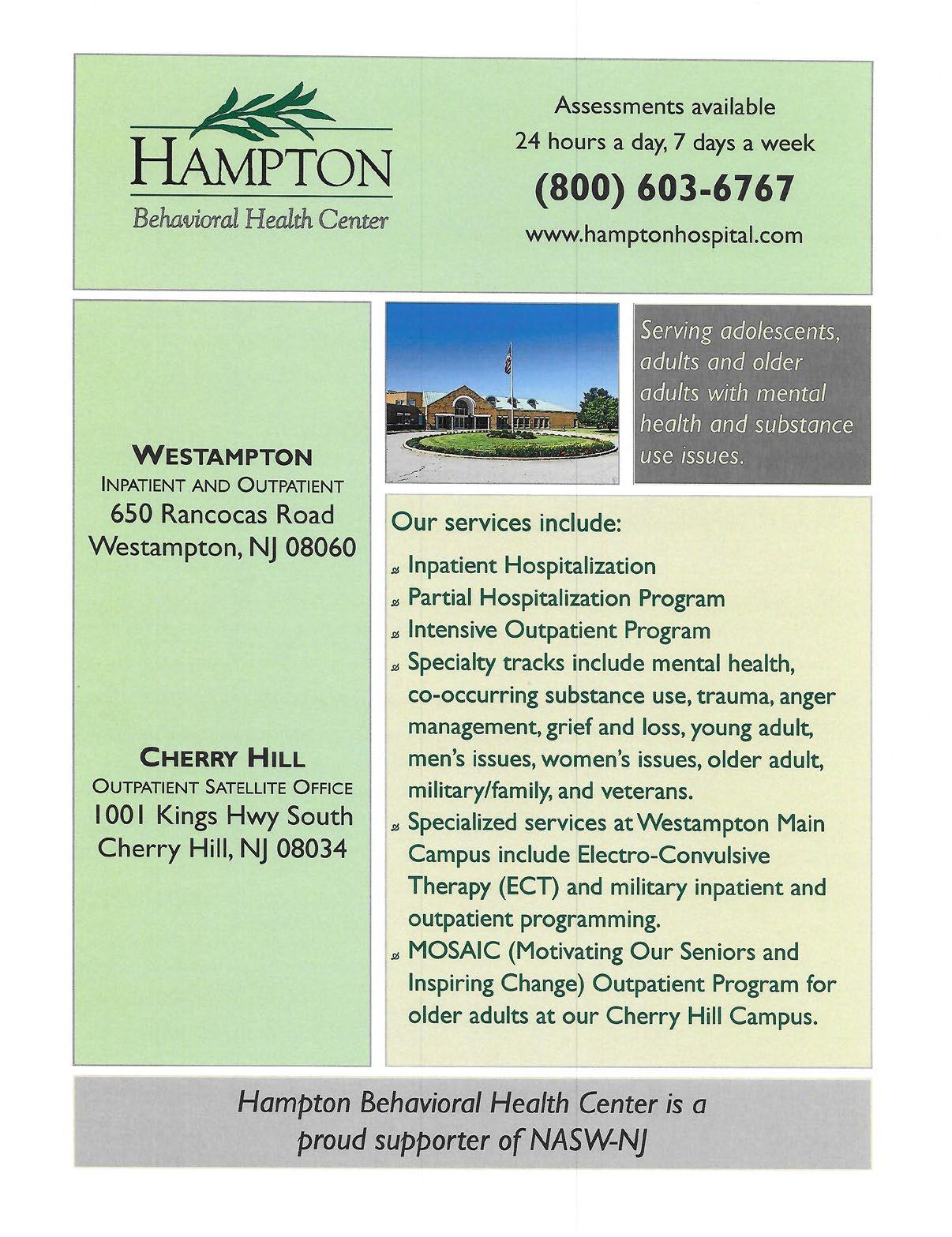
A special mention to Hampton Behavioral Health Center, one of our 2024 NASW-NJ Annual Conference Gold Exhibitors
42 | Spring 2024


















 Carrie Conger MSW, LSW INTERIM PRESIDENT
Carrie Conger MSW, LSW INTERIM PRESIDENT
 Debra A. O’Neal
MSW, ACSW, LMSW EXECUTIVE DIRECTOR
Debra A. O’Neal
MSW, ACSW, LMSW EXECUTIVE DIRECTOR




































































